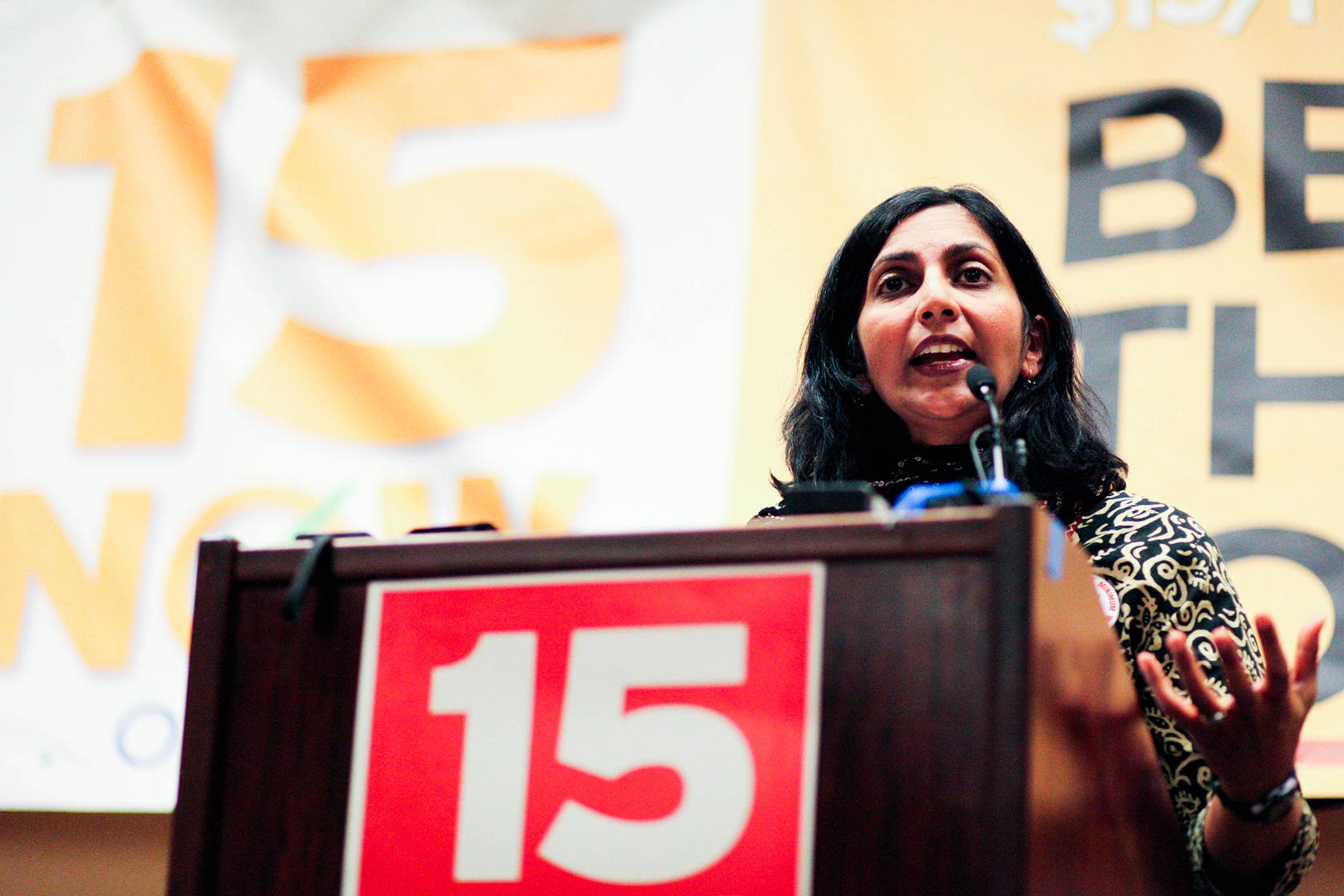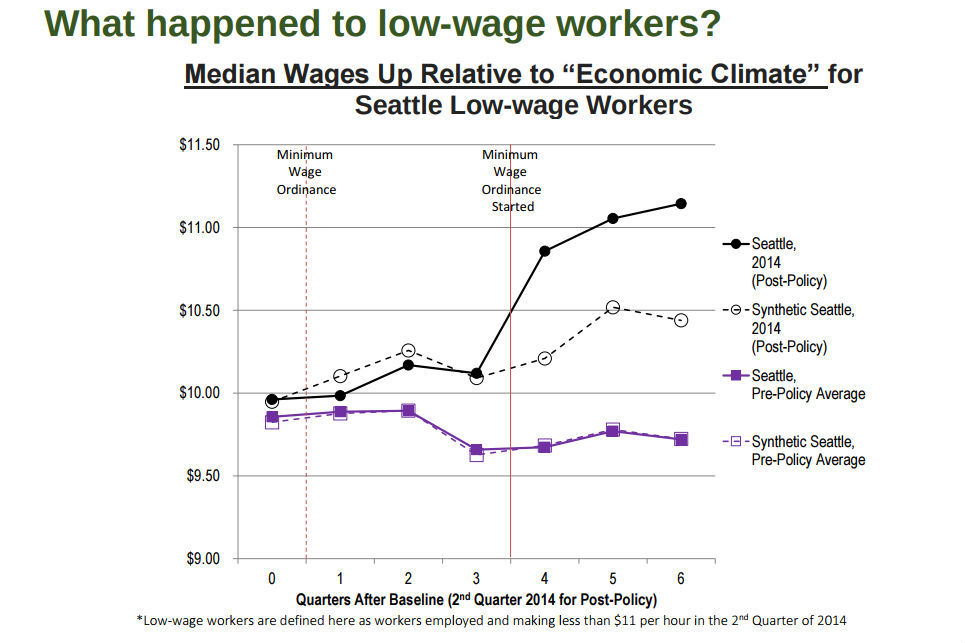During budgeting last year, the City Council declined to provide further funding to a team of University of Washington researchers who have been studying Seattle’s minimum wage law.
The single line item in the budget is now coming under scrutiny due to a flap between the researchers and city leaders over a report released on Monday that suggested Seattle’s groundbreaking minimum wage law is hurting workers. Fox News first reported the declined funding on Thursday; that story quoted Councilmember Kshama Sawant, who has long quarreled with the UW researchers, as saying the decision was due to dissatisfaction with the way the research was being conducted, and not the results.
“The moment we saw it was based on flawed methodology and was going to be unreliable, the Vigdor study no longer speaks for City Hall,” Sawant told Fox News. Sawant was referring to Jacob Vigdor, the lead researcher on the study team.
When the city passed its wage law, which is incrementally increasing the minimum wage to $15 an hour, it also put out a request for proposals for a research team to study the law as it is implemented. The UW team won that contract, though it did not come with a set amount of funding and instead depended on annual appropriations from council. For example, for 2016, the UW team requested, and was given, $135,700 to interview workers and business owners about their experiences with the law. This budget cycle, similar requests were made—$140,000 for 2017 and $105,000 for 2018—but were not fulfilled.
“The city had been funding the UW to do this minimum wage research, and they stopped doing that,” City Auditor David Jones tells Seattle Weekly. The funding had been routed through the auditor’s office. The researchers “did make a request. The request was transmitted to council,” and council decided to not fund it.
“I don’t know why they made that decision,” Jones says.
In total, the city had provided the researchers $486,716 for the ongoing research.
City dollars only made up a portion of the group’s funding portfolio. It is also receiving grants from several foundations—which wholly funded the most recent report. Jones says the city is still owed one study from the UW group in return for funding provided in 2016.
Sawant, who holds a Ph.D. in economics and taught economics at at Seattle Central, and others have taken issue with the ongoing UW study for a variety of reasons. Among them is the team’s use of a “synthetic Seattle” where there was no minimum wage increase—against which the researchers compared real-life Seattle. In the most recent study, the synthetic Seattle led researchers to suggest the higher minimum wage has cost the city 5,000 jobs. Other researchers have said the team’s methodology was deeply flawed and could not be trusted, though the research has also been lauded as “very credible.” Sawant has also bristled at some of Vigdor’s public statements about the minimum wage law. For example, last July he told KIRO Radio: “We think the minimum wage is actually putting a little bit of a drag on the Seattle economy, and holding back growth and jobs and hours. When it comes to incomes, at the end of the day we are finding effects that are pretty small, and we are not sure if they are negative or positive.”
“To be clear, I am not challenging the substance of your core findings, but rather the manner in which they have been presented in the report and misrepresented in the press,” Sawant wrote Vigdor in a letter last September.
But it’s also true that the team’s research, especially the study released Monday, does not paint a rosy picture of the historic wage law, which is being watched closely across the country as a case study for other minimum wage increases (Minneapolis passed a $15-an-hour law today). Thus, politicians who support the law—Sawant foremost of them—criticizing ostensibly disinterested researchers has led some to cry foul.
Mayor Ed Murray has also cast the wage law as a central accomplishment, and came under criticism earlier this week when it was revealed that his office had shared an early draft of the most recent study with a team of researchers at University of California, Berkeley, whose past research has found more positive impacts of higher minimum wages. That group produced a largely positive report on the wage law’s impact the week before the critical UW study dropped. Fox News now reports it has emails showing that the Mayor’s Office had set a deadline for the report to come out before the UW study became public.
The situation has been described in conservative media as one in which policy leaders are undercutting its own objective research for political purposes. The funding revelation will no doubt fuel that narrative, though it’s important to note that it also shows the rift between City Hall and the researchers predates the most recent critical study, since the budgeting was done last fall, well before the UW study was released.
dperson@seattleweekly.com
A previous version of this story omitted City Auditor David Jones’ last name on first reference.









